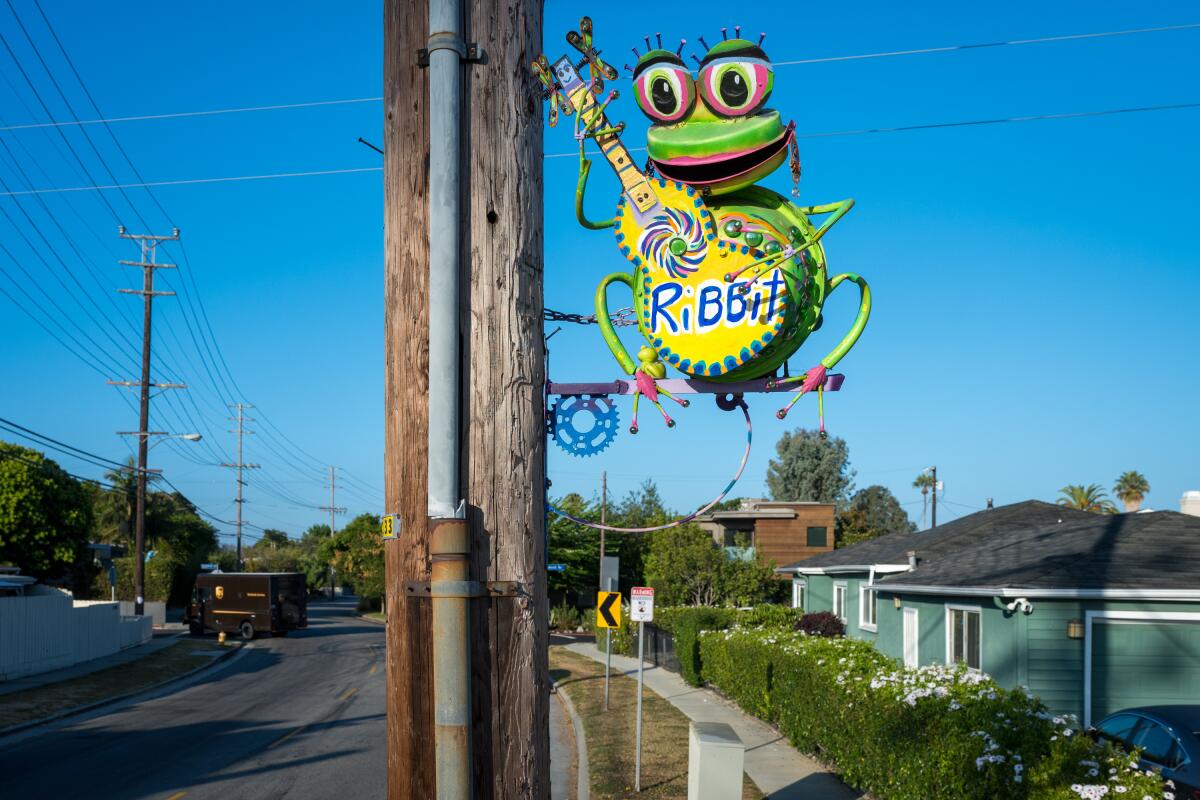Letters to the Editor: They’re utility poles, not canvases. DWP is right to remove those Mar Vista sculptures

To the editor: Do we really want it to be OK for someone to place their artwork on utility poles, which workers must climb to do their jobs near high-voltage equipment, which is extremely dangerous? (“The DWP objects to whimsical utility pole sculptures in Mar Vista. Neighbors love them,” Opinion, Aug. 14)
Why not allow placement of all kinds of other nonlegal items, including business signs, lost-dog signs and advertisements for church bingo?
As a retired 34-year employee of the Los Angeles Department of Water and Power who worked with line mechanics, I was part of a working family. Just because something has been allowed for seven years doesn’t make it legal.
Why doesn’t artist Lori Powers give her pieces to her neighbors for them to display on their property? I think this is a win-win solution. Neighbors get to share Powers’ artwork, and DWP line mechanics don’t have to worry about unsafe working conditions.
Yolanda H. Lickson, Cypress
..
To the editor: Former L.A. City Councilmember Ruth Galanter deserves everyone’s support in her attempts to change the minds of city bureaucrats who want to tear down the street art that is appearing on utility poles in Mar Vista.
I spent 30 years working for the City Council, so I understand how flawed the process of making rules and laws can be. This is one of those times when the rules need to be modified.
And if city attorneys are qualified to determine what is or is not art, they would be called “arttorneys.”
Greg Nelson, Mission Viejo
..
To the editor: This story doesn’t strike me as bureaucracy run amok so much as it smacks of privileged people who think the rules don’t apply to them. There are plenty of reasons — aside from the DWP’s concerns about worker safety — why private sculptures are a bad idea on public utility poles.
For starters, thanks to the publicity now given to them, how many others will hear about this and decide they can install things on utility poles too? And if one of the sculptures fell off and hit someone, guess who’d get sued? (Hint: not the artist.) This is the liability of the DWP, not the artist and her pals.
In dealing with this, why should the DWP have to soften their tone? To appease people with connections to politicians and journalists? And why do they have to find a “win-win” solution?
There’s a process for selecting and installing art in public places, and this isn’t it. The obvious and simplest remedy is to put the art in the artist’s own yard and those of the neighbors who like it so much.
Kathy Barreto, Culver City






